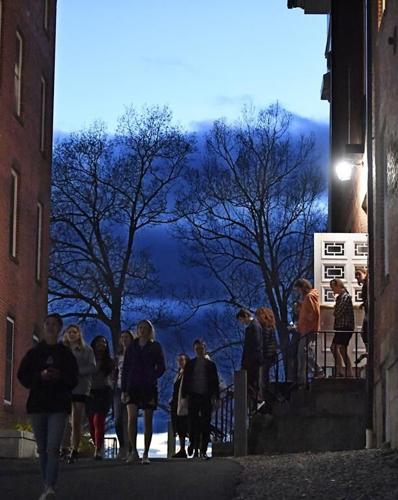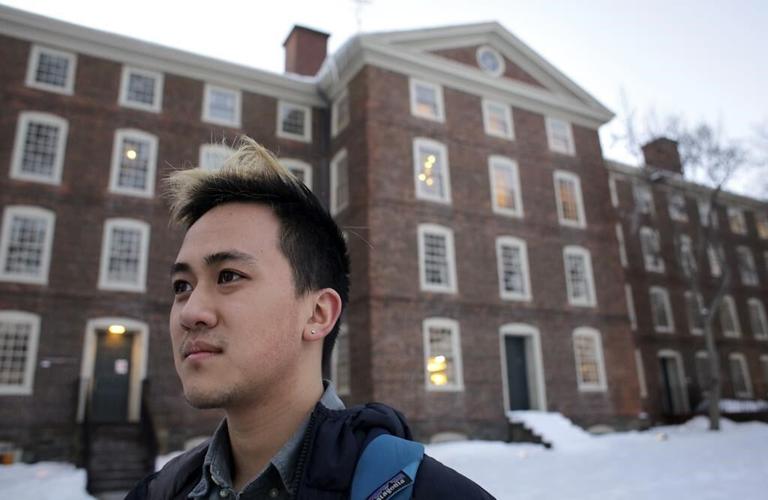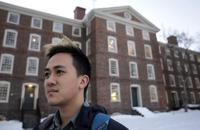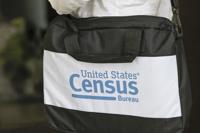WASHINGTON (AP) — The next big fight over college admissions already has taken hold, and it centers on a different kind of minority group that gets a boost: children of alumni.
In the wake of a that strikes down affirmative action in admissions, colleges are coming under renewed pressure to put an end to legacy preferences — the practice of favoring applicants with family ties to alumni. Long seen as a perk for the white and wealthy, opponents say it’s no longer defensible in a world with no counterbalance in affirmative action.
after the court’s ruling, saying legacy preferences “expand privilege instead of opportunity.” Several Democrats in Congress demanded an end to the policy in light of the court’s decision to remove race from the admissions process. So did Republicans including Sen. Tim Scott of South Carolina, who is vying for the GOP presidential nomination.
“Let’s be clear: affirmative action still exists for white people. It’s called legacy admissions,” Rep. Barbara Lee, a California Democrat, said on Twitter.
For critics of legacy admissions, the renewed debate over fairness in admissions has offered a chance to swing public sentiment behind their cause.
As colleges across the U.S. pledge their commitment to diversity following the court’s ruling, activists have a simple response: prove it. If schools want to enroll more Black, Hispanic and Indigenous students, activists say, removing legacy preferences would be an easy first step.
“Now more than ever, there’s no justification for allowing this process to continue,” said Viet Nguyen, a graduate of Brown and Harvard who leads Ed Mobilizer, a nonprofit that has fought legacy preferences since 2018. “No other country in the world does legacy preferences. Now is a chance to catch up with the rest of the world.”
Using the Supreme Court decision as a catalyst, Nguyen’s group is rallying the alumni of top colleges to press their alma maters to end the practice. The goal is to get graduates of the 30 schools to withhold donations until the policy ends. The schools include Harvard and the University of North Carolina, which were at the center of the court case, along with the rest of the Ivy League and the University of Southern California.
It builds on other efforts taking aim at the practice. at public universities in 2021, and lawmakers in Connecticut, Massachusetts and New York have introduced similar bills. In Congress, Rep. Jamaal Bowman of New York and Sen. Jeff Merkley of Oregon, both Democrats, are reviving legislation that would forbid it at all universities that accept federal money.
Legacy preferences have become an easy target in the wake of a Supreme Court decision that hinged on questions of merit in the college application process, said Julie Park, who studies college admissions and racial equity at the University of Maryland. Instead of getting in on their own merit, she said, legacy students are just “standing on their parents’ shoulders.”
“It’s just low-hanging fruit,” she said. “People want something to do, and there’s a strong rationale to get rid of it.”
Secretary Miguel Cardona urged colleges to “ask themselves the tough questions,” adding that legacy admissions and other types of special treatment “have long denied well-qualified students of all backgrounds a level playing field.”
“In the wake of this ruling, they could further tip the scales against students who already have the cards stacked against them,” Cardona said in a statement to The Associated Press.
In the hazy world of college admissions, it’s unclear exactly which schools provide a legacy boost and how much it helps. In California, where state law requires schools to disclose the practice, USC reported that 14% of last year’s admitted students had family ties to alumni or donors. Stanford reported a similar rate.
At Harvard, which released years of records as part of the lawsuit that ended up before the Supreme Court, legacy students were eight times more likely to be admitted, and nearly 70% were white, researchers found.
last year found that legacy students in the freshman class ranged from 4% to 23%. At four schools — Notre Dame, USC, Cornell and Dartmouth — legacy students outnumbered Black students.
Supporters of the policy say it builds an alumni community and encourages donations. A 2022 study of an undisclosed college in the Northeast found that legacy students were more likely to make donations, but at a cost to diversity — the vast majority were white.
Some prestigious colleges have abandoned the policy in recent years, including and Johns Hopkins University. In the first year after dropping it, Amherst saw its share of legacy students in the freshman class fall by about half, while 19% of first-year students were the first in their families to attend college, the most in the school’s history.
Some colleges argue that, as their student bodies become more racially diverse, the benefits of legacy status will extend to more students of color. Opponents argue that white families still have an advantage, with generations of relatives who had access to any college.
Ivory Toldson went to college at Louisiana State University, but it wasn’t an option for his parents in the Jim Crow South.
“My parents couldn’t legally go to LSU. Discrimination is a lot more recent in our history than a lot of people seem to understand,” said Toldson, a Howard University professor and the director of education, innovation and research for the NAACP.
Toldson said there’s growing awareness of the irony that preferences for athletes and legacy students are still allowed, while race must be ignored.
In May, an found that few Americans think legacy admissions or donations should play much of a role in college admissions. Just 9% say it should be very important that a family member attended and 18% say it should be somewhat important. Likewise, only 10% say donations to the school should be very important and 17% say that should be somewhat important.
That same poll found that most Americans support affirmative action in higher education but think race should play a small role. Sixty-three percent said the Supreme Court should not block colleges from considering race in admissions, but 68% said it should not be a big factor.
Several colleges declined to say whether they will continue providing a boost for legacy students next year, including Cornell and the University of Notre Dame.
Meanwhile, Nguyen said he’s more optimistic than ever. In the past, colleges have been reluctant to be among the first to make the change, he said. Now he thinks that’s changing.
“In the next few months, I think the hesitancy will actually be who will be the last,” he said. “No university wants to be the last.”
___
The Associated Press education team receives support from the Carnegie Corporation of New York. The AP is solely responsible for all content.










































